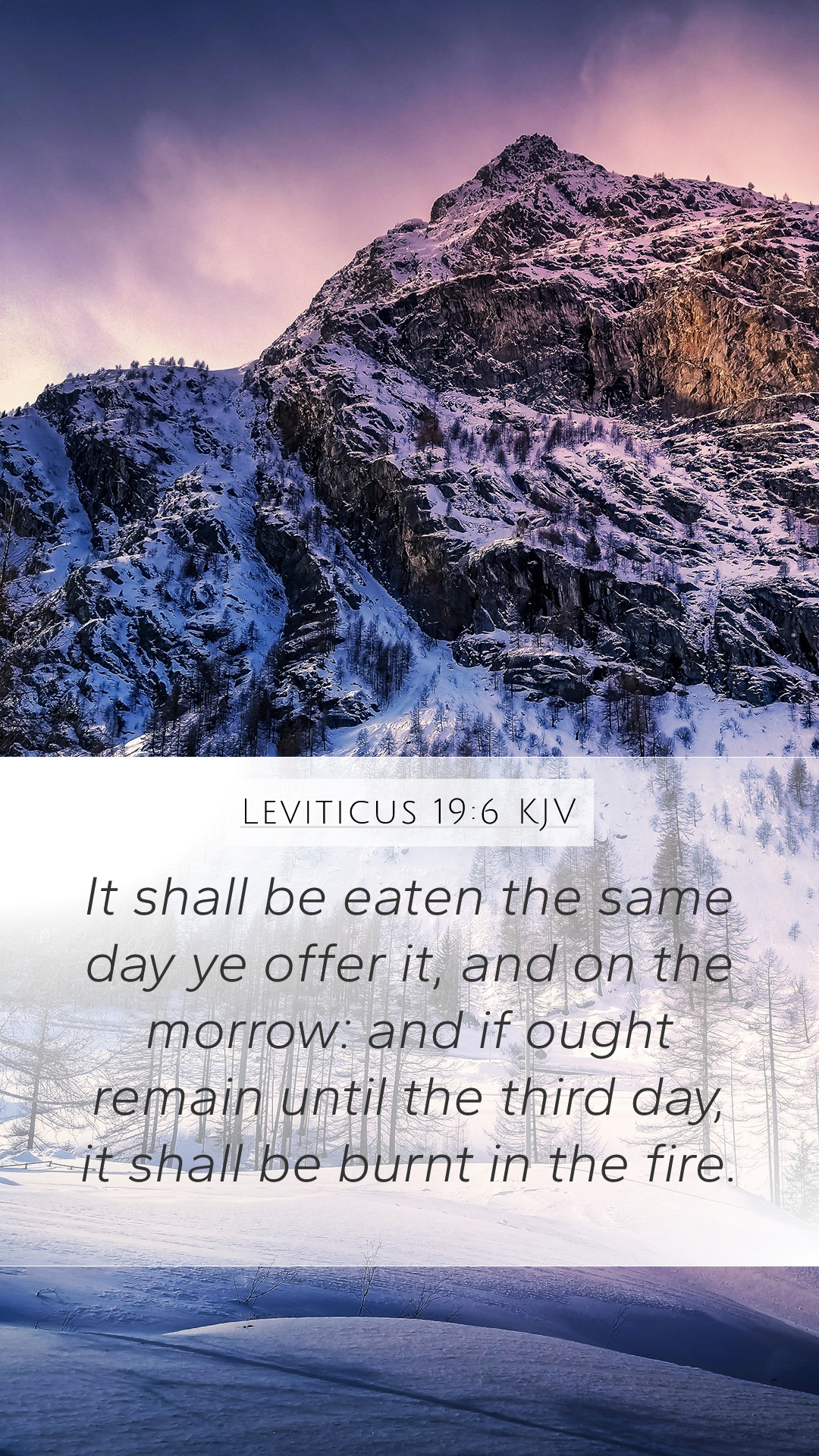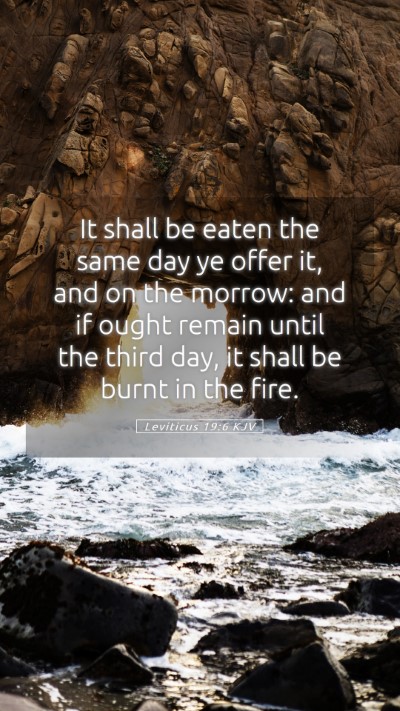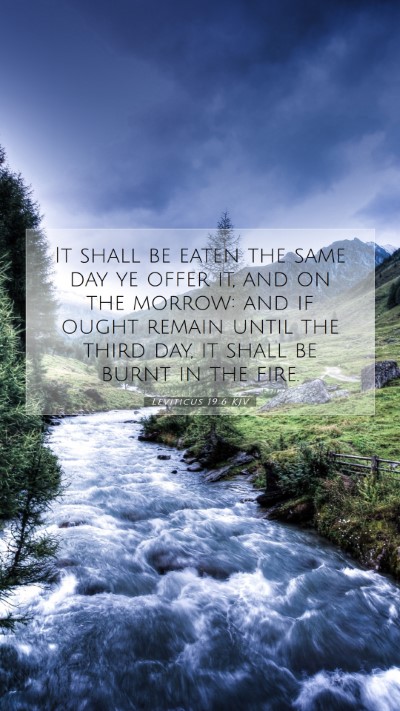Bible Verse Meaning: Leviticus 19:6
Bible Verse: "And you shall eat it in the same day you offer it, and on the next day the remainder of it shall be burned with fire." (Leviticus 19:6)
In this passage, God provides instructions concerning the offerings made to Him, emphasizing the need for reverence and dedication in worship.
Insights from Public Domain Commentaries
Matthew Henry's Commentary
According to Henry, this verse highlights the importance of the offerings being consumed on the same day they are presented, which signifies God's desire for the worship to be fresh and immediate. He stresses that delayed offerings may lead to deterioration—not just physically but spiritually. The act of burning the leftovers ensures that nothing unholy remains, pointing towards the importance of purity in worship.
Albert Barnes' Notes
Barnes provides an analytical view of the ordinances surrounding offerings. He explains that these rules were paramount for the Israelites in maintaining the sanctity of their worship practices. The specific directive to consume or destroy the offering on the same day serves as both a symbolic cleansing and a practical stipulation to prevent any corruption of the sacrifice. Barnes notes that this structured approach illustrates God's desire for order and holiness.
Adam Clarke's Commentary
Clarke interprets this verse to reflect on the nature of fellowship with God, suggesting that the offerings symbolize a bond of communion between God and His people. He explains that this method prevents waste and enforces a culture of gratitude and respect for God's provisions. Though the offerings serve a physical purpose, they also carry significant spiritual weight, influencing how the community relates to one another and to God.
Combined Interpretation
The verse from Leviticus 19:6 encapsulates not just an instruction, but a broader principle regarding the freshness and dedication of one's worship. The immediate consumption of offerings ensures that the act of worship remains a significant, present event. The burning of any leftovers symbolizes the complete devotion and the necessity of purifying one's offerings before God.
Applications in Bible Study
Understanding this verse can greatly enhance one’s Bible study insights and enrich discussions in Bible study groups. Here are some ways this passage can be applied:
- Using Scripture Analysis: Dive into the broader themes of sacrifice and offerings found throughout Leviticus.
- Utilizing Bible Study Tools: Cross-reference related verses to draw parallels on the importance of how we present ourselves to God.
- Developing Bible Study Lessons: Create lessons around the meaning of offerings in the context of gratitude and purity.
Related Scripture References
- Exodus 29:32-34 - Instructions regarding the flesh of the offerings.
- Leviticus 7:15 - The laws concerning the eating of the sacrifices.
- Deuteronomy 12:17-18 - Further guidance on how the offerings should be consumed.
Conclusion
This verse and its accompanying commentary underscore how ancient practices inform modern faith. It encourages believers to reflect on how we offer ourselves to God daily and maintain the commitment and integrity of our worship. Incorporating these teachings into one’s personal study can lead to enriched insights about meaning of Bible verses, providing clarity on how to apply ancient wisdom to contemporary life.
SEO Keywords Utilized: Bible verse meanings, Bible verse interpretations, Bible verse understanding, Bible verse explanations, Bible verse commentary, Scripture analysis, Biblical exegesis, Bible study insights, meaning of Bible verses, understanding Scripture.


